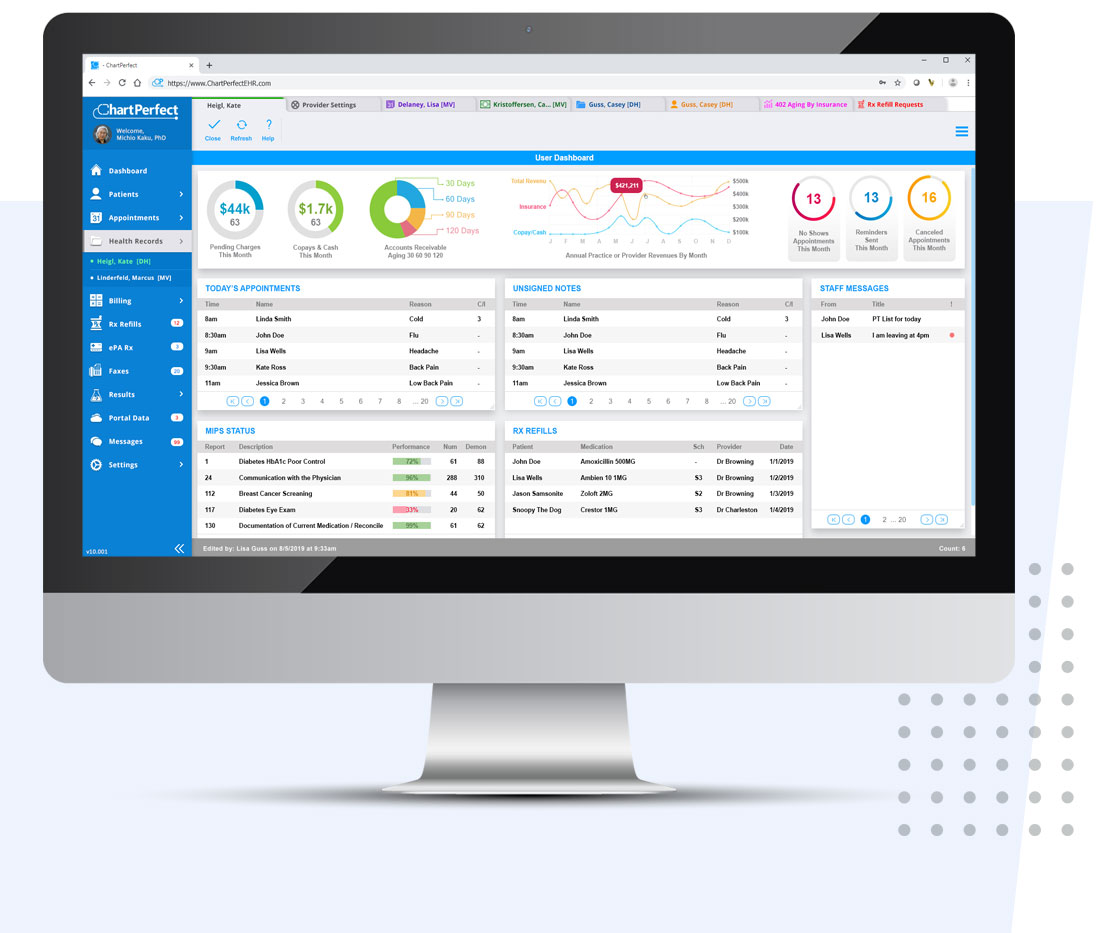In the constantly changing landscape of health services, practice management software is emerging as a crucial tool for medical practices. As healthcare practitioners face increasing pressures to improve efficiency, improve patient care, and optimize operations, these digital solutions are stepping in to offer robust support. With a versatile range of features that include appointment setting, invoicing, and patient engagement, these solutions is revolutionizing the way healthcare providers oversee their daily activities.
The move to practice management software is not just a matter of ease; it is a strategic move toward a more organized and patient-focused approach to medical services. By adopting these software, practices can reduce administrative burdens, minimize errors, and save valuable time that can be better spent on providing care. As we examine more into how such solutions is transforming clinics, it becomes clear that this trend is not just a passing phase but a fundamental transformation toward a more efficient and successful health service ecosystem.
Streamlining Processes
Healthcare practice management tools is revolutionizing how medical practices function by centralizing various administrative tasks into a integrated platform. With features such as managing appointments, invoicing, and managing patients, healthcare providers can reduce the time spent on standard administrative functions. By automating these processes, practices can lessen errors, enhance communication, and increase overall efficiency, allowing staff to dedicate time more on patient care rather than administrative tasks.
Additionally, practice management software facilitates better data organization and accessibility. Health professionals can quickly get patient histories, treatment plans, and billing information without sorting cumbersome filing systems. This easy access to essential information not only spares time but also ensures that healthcare providers can make informed decisions promptly, leading to improved patient outcomes. Enhanced data management encourages a more systematic practice environment.
Furthermore, with the integration of practice management software, medical practices can achieve seamless coordination between different departments, such as billing and clinical teams. Improved collaboration fosters a more unified workflow, which is crucial in a dynamic medical setting. As a result, the adoption of practice management software not only improves operational efficiency but also boosts the overall patient experience, building a foundation for future growth in healthcare delivery.
Improving Patient Involvement

Healthcare management software has a crucial role in improving patient involvement by promoting more effective communication between health professionals and consumers. With capabilities such as client access points, encrypted communication, and appointment reminders, this software empowers consumers to adopt an active position in their healthcare. By allowing clients to view their patient files, diagnostic results, and care strategies online, they are more aware and active in their health process.
Another important element is the capability to provide personalized educational resources through patient management applications. Healthcare providers can provide relevant research, videos, and data about health issues or interventions that resonate with particular clients. This customized method not just enhances client understanding, but also fosters loyalty as clients value getting tailored data that meets their individual healthcare needs.
In addition, practice management software helps streamline booking appointments and follow-up processes. Consumers can conveniently schedule meetings, modify, or terminate free from the hassle of telephone communication or waiting on hold. This convenience enhances their total satisfaction and satisfaction, leading to more robust connections with their health practitioners. By making engagements more effective and easy, practice management software is indeed revolutionizing how clients interact with their healthcare facilities.
Boosting Economic Management
Efficient financial management is essential for the viability of all medical practice. Healthcare management software supplies tools that streamline billing processes, manage claims, and manage payments with exactness. By digitizing these tasks, practices can minimize the likelihood of mistakes, minimize delays in payment, and boost overall revenue cycle management. This ensures that healthcare providers can focus more on patient care rather than administrative burdens.
Moreover, practice management software offers comprehensive reporting features that allow practices to assess their financial performance accurately. By accessing real-time data on expenses, revenue, and payer trends, medical practices are equipped to make data-driven decisions. These data can help identify areas for budget cuts, enhance staffing levels, and boost service offerings, ultimately increasing financial gains and financial health.
Furthermore, with functions like patient payment interfaces and billing reminders, practices can promote prompt payments and minimize outstanding receivables. This not only improves cash flow but also augments patient satisfaction by providing them with seamless payment options. As a result, the integration of practice management software is revolutionizing the financial landscape of medical practices, opening doors for a more solid and successful future.
